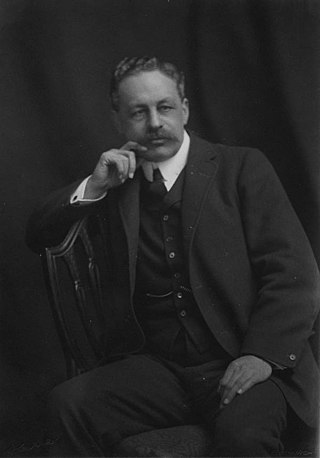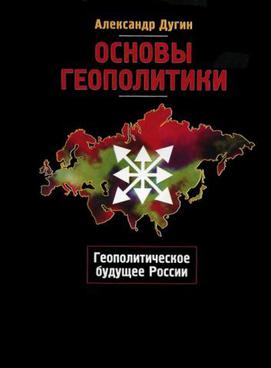
The "Clash of Civilizations" is a thesis that people's cultural and religious identities will be the primary source of conflict in the post–Cold War world. The American political scientist Samuel P. Huntington argued that future wars would be fought not between countries, but between cultures. It was proposed in a 1992 lecture at the American Enterprise Institute, which was then developed in a 1993 Foreign Affairs article titled "The Clash of Civilizations?", in response to his former student Francis Fukuyama's 1992 book The End of History and the Last Man. Huntington later expanded his thesis in a 1996 book The Clash of Civilizations and the Remaking of World Order.
Geopolitics is the study of the effects of Earth's geography on politics and international relations. While geopolitics usually refers to countries and relations between them, it may also focus on two other kinds of states: de facto independent states with limited international recognition and relations between sub-national geopolitical entities, such as the federated states that make up a federation, confederation, or a quasi-federal system.

The Eurasia Party is a National Bolshevik Russian political party. It was registered by the Ministry of Justice on 21 June 2002, approximately one year after the pan-Russian Eurasia Movement was established by Aleksandr Dugin.

Aleksandr Gelyevich Dugin is a Russian far-right political philosopher.
Byzantinism, or Byzantism, is the political system and culture of the Byzantine Empire, and its spiritual successors the Orthodox Christian Balkan countries of Greece and Bulgaria especially, and to a lesser extent Serbia and some other Orthodox countries in Eastern Europe like Belarus, Georgia, Russia and Ukraine. The term Byzantinism itself was coined in the 19th century. The term has primarily negative associations, implying complexity and autocracy.

"The Geographical Pivot of History" is an article submitted by Halford John Mackinder in 1904 to the Royal Geographical Society that advances his heartland theory. In this article, Mackinder extended the scope of geopolitical analysis to encompass the entire globe.
Eurasianism is a socio-political movement in Russia that emerged in the early 20th century under the Russian Empire, which states that Russia does not belong in the "European" or "Asian" categories but instead to the geopolitical concept of Eurasia governed by the "Russian world", forming an ostensibly standalone Russian civilization.

Dimitri Kitsikis was a Greek Philosopher, Turkologist and Sinologist, as well as a Professor of International Relations and Geopolitics. He also published poetry in French and Greek.

People's Republic of China has an embassy in Athens. The Hellenic Republic has an embassy in Beijing and three general consulates in Guangzhou, Hong-Kong and since 2005 in Shanghai. The Port of Piraeus is important from a geostrategic view for China, as it helps China's transactions with the whole of Europe. Thousands of Chinese people are living in Greece in the Overseas Chinese context and approximately 1000 Greek citizens are living in China. Modern diplomatic relations between the two countries were established in 1972. Today, Greece and China enjoy a very good relationship based on a solid foundation, which continues to be growing steadily.
East-Central Europe is the region between German-, Hungarian-, and West Slavic-speaking Europe and the East Slavic countries of Belarus, Russia, and Ukraine. Those lands are described as situated "between two": "between two worlds, between two stages, between two futures".

The Eurasian Youth Union is a Russian traditionalist political organization, the youth wing of the Eurasia Party headed by Aleksandr Dugin. The organization has branches in several countries. In 2011, the Government of Ukraine has branded the ESM as an extremist anti-Ukrainian organization, convicted of a string of vandalism offenses and banned it in Ukraine.
Mark Bassin is a geographer and specialist on Russian and German geopolitics. He is currently employed as a professor in historical and contemporary studies at Södertörn University.

The participation of Greece in the Balkan Wars of 1912–1913 is one of the most important episodes in modern Greek history, as it allowed the Greek state to almost double its size and achieve most of its present territorial size. It also served as a catalyst of political developments, as it brought to prominence two personalities, whose relationship would dominate the next decade and have long-lasting repercussions for Greece: the Prime Minister Eleftherios Venizelos, and the Army's commander-in-chief, the Crown Prince and later King, Constantine I.

The Foundations of Geopolitics: The Geopolitical Future of Russia is a geopolitical book by Aleksandr Dugin. Its publication in 1997 was well received in Russia; it has had significant influence within the Russian military, police, and foreign policy elites, and has been used as a textbook in the Academy of the General Staff of the Russian military. Powerful Russian political figures subsequently took an interest in Dugin, a Russian political analyst who espouses an ultranationalist and neo-fascist ideology based on his idea of neo-Eurasianism, who has developed a close relationship with Russia's Academy of the General Staff.

Hellenoturkism is a political concept that encompasses two things: a fact of civilization of the Greek and Turkish peoples and cultures, and a political ideology based on the above civilizational phenomenon, which aims at establishing a Hellenic-Turkish political ensemble, national, and cultural identity.
Eastern Party is a concept that has long been used by mainstream historians to define the reaction of a section of the population in the Third World countries against Westernization and the import of Western values in their societies. Rather than a specific political party, the term refers to a current in the public opinion of the said countries opposed to a "Western Party" of modernizers, who tend to accept Westernization as an inevitable phenomenon, which finally benefits the overall progress of Third World societies. Particularly in the history of Greece and Byzantium, this concept has been largely used by noted historians like Arnold J. Toynbee, Leften Stavrianos, Alexander Vasiliev and Nicolae Iorga, at the beginning of the 20th century and later by Dimitri Kitsikis.
This is a timeline of the presence of Eastern Orthodoxy in Greece from 1821 to 1924. The history of Greece traditionally encompasses the study of the Greek people, the areas they ruled historically, as well as the territory now composing the modern state of Greece.

Aymeric Chauprade is a French writer, political scientist and politician. He left the National Front on 9 November 2015, mostly for "moral and political" principles, to found Les Français Libres. A student and disciple of François Thual, he is an advocate of realpolitik. He was elected to the European Parliament from the National Front for the Île-de-France constituency in the 2014 European Parliament election.

Athanasia "Sia" Anagnostopoulou is a left-wing Greek politician and academic who was the Alternate Minister of Foreign Affairs in the Second Cabinet of Alexis Tsipras. From 18 July to 28 August 2015, she served as the Alternate Minister for European Affairs in the First Cabinet of Alexis Tsipras.













